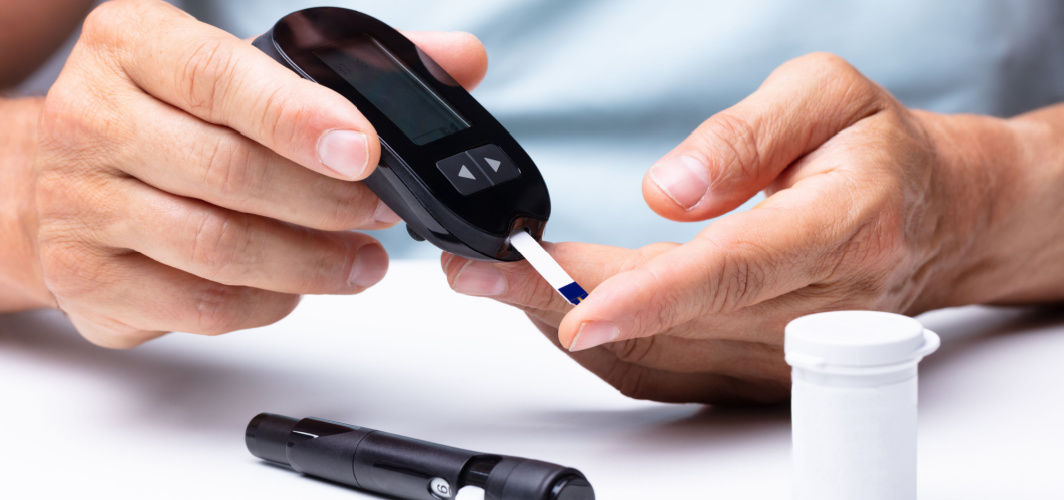Diabetes Management
Supplements: Allies in Ageing, Diabetes, and Dementia Prevention
2 min read
By Apollo 24|7, Published on - 20 May 2024
Share this article
0
0 like
.jpg?tr=q-80)
The use of dietary supplements is a topic that sparks much discussion. As we age, our bodies change, and our nutritional needs shift. Certain supplements can help fill nutritional gaps and prevent aging, diabetes, and dementia. But remember, they aren't magic potions; they work best with a balanced diet and regular exercise.
The Power of Antioxidants
Antioxidants protect our cells from damage caused by free radicals - harmful molecules that can lead to aging and various diseases. They're found in many fruits and vegetables but can also be taken as supplements. Vitamins C, E, and beta-carotene are well-known antioxidants. Vitamin C supplements are available as tablets, chewable, dispersible powders, and syrup. Vitamin E and carotene supplements are available as tablets and powders.
Understanding Omega-3 Fatty Acids
Omega-3 fatty acids are known for their heart health benefits. However, their role doesn't end there. They also contribute to brain health and may help reduce the risk of dementia. Omega-3 supplements could be considered if your diet lacks fish or other omega-3-rich foods. There are some well-known and doctor-recommended brands available in India.
Role of B-vitamins in Diabetes Management
B vitamins like B1 (thiamine), B6 (pyridoxine), B9 (folic acid), and B12 (cobalamin) are important for overall health. Thiamine helps prevent complications of diabetes, such as nerve damage. Folic acid helps keep your blood glucose levels stable, reducing the risk of diabetes. There are numerous Vitamin B supplements available in the Indian market. Your doctor will prescribe the most suitable supplement based on your requirements.
Calcium and Vitamin D for Bone Health
Ageing often threatens bone health. Calcium and Vitamin D work together to protect bones. Vitamin D helps your body absorb calcium, while calcium helps build and maintain strong bones.
Remember, dietary supplements should not replace a healthy diet. Before starting any supplement regimen, it's important to consult with your doctor or a dietitian to avoid potential risks or interactions with medications.
Supplements are indeed powerful allies in our journey towards better health. However, they work best with a balanced diet, regular exercise, and other lifestyle modifications.
Diabetes Management
Consult Top Diabetologists
View AllLeave Comment
Recommended for you

Diabetes Management
Why Blood Sugar Levels are High in the Morning?
Many people have blood sugar levels in the morning because of the Dawn Phenomenon. This involves the release of hormones like cortisol and growth hormone in the early morning, prompting the liver to release glucose, leading to elevated blood sugar. To address morning hyperglycemia, individuals can adjust bedtime snacks, optimise medication timing, engage in regular exercise, make mindful dinner choices, stay hydrated, and monitor blood sugar levels.

Diabetes Management
Can Diabetes Affect Your Recovery?
Diabetes impacts recovery, leading to delayed healing, infection risks, and surgical complications due to impaired blood flow and immune function. Neuropathy complicates pain management, while comorbidities extend recovery times. Effective management, including blood sugar control and a healthy lifestyle, improves outcomes. High blood sugar limits healing by reducing nutrient flow and immunity, promoting inflammation.
.jpg?tr=q-80)
Diabetes Management
Selecting the Right Injection Site for Insulin: A Guide
Understanding how and where to inject your insulin can enhance its effectiveness in managing your blood sugar levels. The abdomen, lateral thigh, back of the upper arms, and upper outer buttocks are considered safe areas for insulin injections. But remember, consistent site rotation is vital to avoid lipohypertrophy and ensure effective insulin absorption. Doctors can help educate patients about these details for optimal diabetes management. Further, consider joining a programme like the Apollo Super 6 for expert guidance and support in your diabetes journey.
Subscribe
Sign up for our free Health Library Daily Newsletter
Get doctor-approved health tips, news, and more.
Visual Stories

8 Fruits That are Incredibly Healthy for Diabetes
Tap to continue exploring
Recommended for you

Diabetes Management
Why Blood Sugar Levels are High in the Morning?
Many people have blood sugar levels in the morning because of the Dawn Phenomenon. This involves the release of hormones like cortisol and growth hormone in the early morning, prompting the liver to release glucose, leading to elevated blood sugar. To address morning hyperglycemia, individuals can adjust bedtime snacks, optimise medication timing, engage in regular exercise, make mindful dinner choices, stay hydrated, and monitor blood sugar levels.

Diabetes Management
Can Diabetes Affect Your Recovery?
Diabetes impacts recovery, leading to delayed healing, infection risks, and surgical complications due to impaired blood flow and immune function. Neuropathy complicates pain management, while comorbidities extend recovery times. Effective management, including blood sugar control and a healthy lifestyle, improves outcomes. High blood sugar limits healing by reducing nutrient flow and immunity, promoting inflammation.
.jpg?tr=q-80)
Diabetes Management
Selecting the Right Injection Site for Insulin: A Guide
Understanding how and where to inject your insulin can enhance its effectiveness in managing your blood sugar levels. The abdomen, lateral thigh, back of the upper arms, and upper outer buttocks are considered safe areas for insulin injections. But remember, consistent site rotation is vital to avoid lipohypertrophy and ensure effective insulin absorption. Doctors can help educate patients about these details for optimal diabetes management. Further, consider joining a programme like the Apollo Super 6 for expert guidance and support in your diabetes journey.


